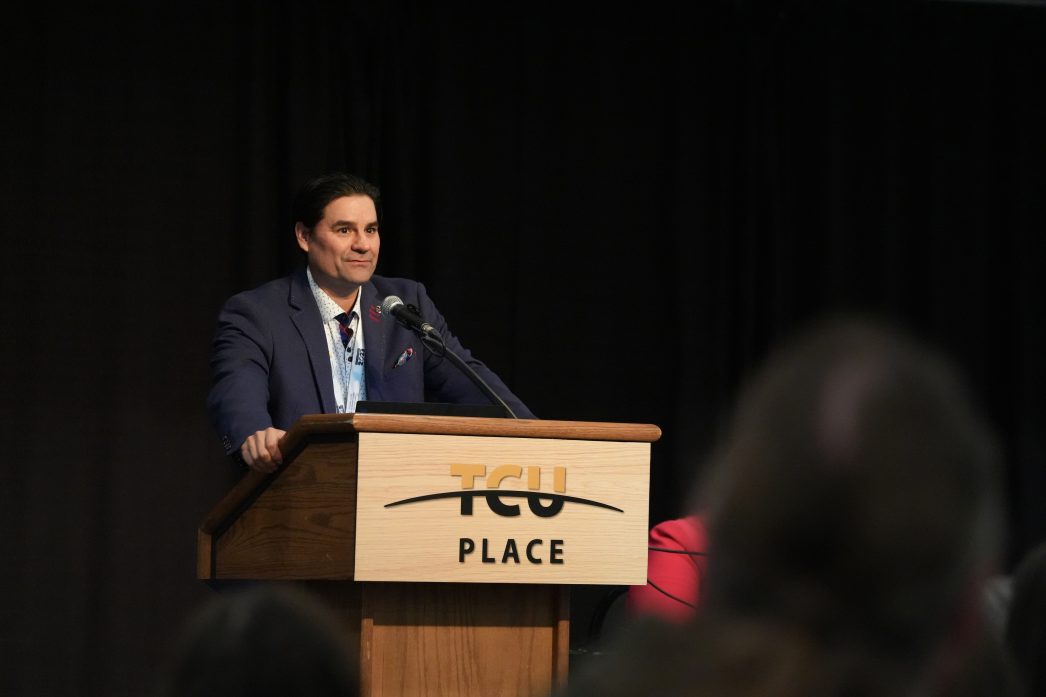In honor of FASD Awareness Month, we had the privilege of sitting down virtually with Niall Schofield who offers some food for thought on a variety of topics.
These include the importance of provinces working together on FASD, the need for the workforce to be educated on FASD and the negative impact of the alcohol industry on society.
Join us as we delve into a candid conversation with Niall.
Meet Niall
“I’ve been an advocate for about seven or eight years now… I guess you could say I’m a dream chaser. I’ve always set super high goals and I’ve achieved them no matter how much time passes. I’m kind of a BMX enthusiast. I’m soon-to-be an author. I love motivational speaking and I love inspiring people. I love being a part of the FASD “nothing without us for us, nothing for us without us” and yeah, everything that I can get involved with, I pretty much do.
Right now, I’m actually getting political and I’m running out in the Kamsack, Saskatchewan area. I sit on the Board of the Buffalo Party here in Saskatchewan… And other than that, I manage pro athletes in the sport of BMX.”
Niall’s political goals include a focus on Indigenous peoples, which benefits the province as a whole. He said about his political stance “And there’s just a lot of good things that we can do for the Indigenous people. Well, not just the Indigenous people, but for the whole province itself.”
The importance of patience
“Patience is a very valuable lesson in life that most people don’t ever really learn. It’s one of the more difficult disciplines in life. I believe patience is the patience to wait for the researchers, the patience to wait for policies to happen, patience to find a voice in the world of FASD. Patience of so many things, like patience of how to learn how to manage money. You must be patient with yourself.
Without patience you can’t get growth and that’s what we need in the world of FASD. We need relative awareness and that’s not going to happen overnight. Without patience you get frustration. With frustration you lose your ambitions and once you lose your ambitions, you stop fighting for the cause when that happens the wheels stop turning.”
How can professionals play a part?
“I think that people could actually just do their own reading of what’s out there because there are still people today that, you know, I’m like, ‘oh, I got FASD, this is what I struggle with’, and they’re like, ‘what is FASD?’. Are you serious?! You’re in the medical field, like how do you not know what FASD is?
And they’re like, ‘well, what is it?’. They’re like, ‘oh, okay, I’ve heard it’. Thank you. Heard of it but they’ll never be like oh ‘I read a great article on that’ or ‘I did some great research’ or ‘I read a good book’ or anything like that. It’s always just like ‘I’ve heard of it’.”
Taking the magnifying glass off Indigenous people
“I just wish they would take the magnifying glass off Indigenous people and put it on just us as a society. And I think, in my opinion, you get a lot more traction like that because nobody really cares about the Indigenous people of Canada.
“[This stigma has] been embedded into us from our government, from our learning, from our education, from our schools. And when you make something prominent with one specific community and that community isn’t even valued, how are you supposed to move the needle?”
The provincial divide
“Provincially, we’re all divided like the rest of the world. If we do not unite and get all on the same page [federally], then the FASD world will spin wheels forever. We need to make sure we spread the same content about FASD and work together.”
The big alcohol monster
“If it’s your birthday, you drink. If you get married, you drink. If you get a promotion at work, you drink. Alcohol is so intertwined into society that nobody has the courage to actually stand up against the big alcohol monster. It’s a global beast. I think that as a society we need to start recognizing the truth of the damage that the alcohol industry does… And until people start owning the truth, you can’t have change.”
FASD Month and beyond
“I would like to say keep striving forward, keep having conversations, keep an open mind, and look for new solutions. I would also like to say everybody that’s involved, regardless of what’s not happening or what’s happening, everybody’s there for a reason. And if we keep on the persistence towards a goal as a whole, we can achieve it.”
Thank you to Niall for sharing his ideas with us. If you’re interested in learning more about the themes covered in this blog, we’d recommend checking out the following resources:
- Canada’s alcohol deficit: The public cost of alcohol outweighs government revenue
- CanFASD’s Indigenous Resources
- National FASD Framework
- Learn more about how you can support people with FASD
Niall is a member of CanFASD’s Adult FASD Expert Collaboration Team where he has contributed to many research projects and shared his experiences at several conferences. If you wish to support people with FASD to participate in research events, please consider donating to our Lived Experience Leadership Fund.

